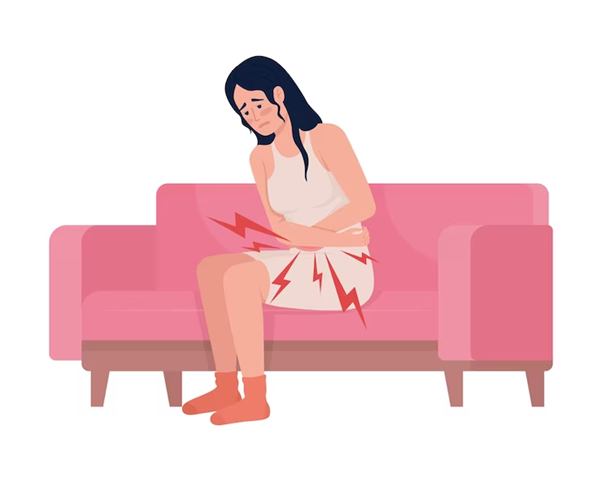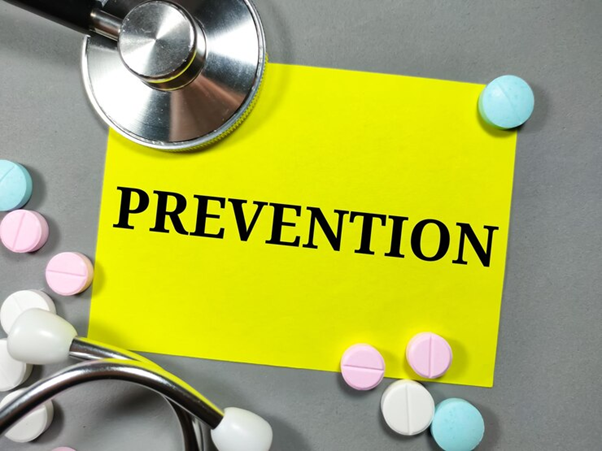- Have any questions?
- +91 90084 82284
- info@drsridharpsoncologist.com
Cervical Cancer After Pregnancy

Understanding Lung Cancer Metastasis to Adrenal Gland
March 1, 2024
Radiation Therapy After Prostatectomy
April 18, 2024Meet Prof Dr. Sridhar Papaiah Susheela, a renowned radiation oncologist in India with over 26 years of experience. He’s highly regarded for his expertise in cutting-edge radiation technologies, including IMRT, IGRT, SBRT, Tomotherapy, and chemoradiotherapy.
Cervical cancer is a major health concern that affects women worldwide. The issue is pressing, with projections indicating that there could be 604,000 new cases, leading to 342,000 fatalities in upcoming years according to a case report 2022.This highlights an urgent need for focused support, especially in countries with fewer resources, to address and combat this disease effectively.
The postpartum period (immediately after giving birth) is that time during which women need to be reminded of the importance of their cervical health. This blog is written to help you learn about risks associated with cervical cancer and educate you on signs to watch out for and offer guidance on proper health maintenance during this critical time.
Concerned about cervical cancer symptoms post-pregnancy? Learn more about what to look out for and when to seek medical advice from Dr. Sridhar PS and Dr Anuradha by scheduling a check-up today.
Should you notice any unusual symptoms post-pregnancy, it’s essential to discuss them with your doctor promptly. Seeking medical advice ensures timely intervention and peace of mind.
Symptoms of Cervical Cancer After Pregnancy

Cervical cancer is a kind of disease that can happen to women. After having a baby, if you notice any of these signs, it’s important to talk to a doctor:
Concerned about cervical cancer symptoms post-pregnancy? Let’s discuss what to look out for and ensure your health remains a top priority. Reach out to schedule a consultation today.
- Bleeding:
Bleeding between periods or after sexual intercourse is a symptom to be aware of. Take note if you experience changes such as heavier flows or periods lasting longer than usual. Also, if you start to see bleeding after a year or more of not having periods (post-menopausal), it’s important to pay attention to these signs.
- Pain or Discomfort:
If you experience pain during intercourse or notice persistent pressure in your stomach or pelvis that isn’t related to menstrual cramps, it’s important to seek medical attention. These symptoms can indicate underlying health issues that require a professional evaluation.
- Strange Discharge:
If your flow is a bit more than normal, and you observe any unpleasant odor or even a bit of redness.
- Pain while Peeing:
If you notice blood in your urine, which may also be accompanied by a burning sensation,these symptoms could indicate a urinary tract infection or other medical conditions that require prompt attention.
- Pelvic or Back Pain:
If you have pain in just the lower area of the belly and back for most of the time.
Remember, it’s important to tell a doctor about any of these things. They can help figure out what’s going on and how to make you feel better.
Regular check-ups with your doctor are also important to stay healthy. Book your consultation with Dr. Sridhar now!
Once cervical cancer is diagnosed after pregnancy, treatment options like surgery, chemo, or radiation are tailored to fit your health needs. Your doctor will guide you through what’s best for you, ensuring you get the right care.
Treatment Options for Cervical Cancer after pregnancy

If someone is diagnosed with cervical cancer after pregnancy, the treatment options depend on various factors such as the stage of cancer, the woman’s overall health, and her desire for future pregnancies.
Here are some common treatment options:
| Treatment Type | Description/Purpose |
| Surgery | Conization or LEEP: Removes part of the cervix with abnormal cells. Hysterectomy: Removes the uterus, impacting fertility. |
| Radiation Therapy | External Beam Radiation: High-energy rays target cancer cells. Brachytherapy: Internal radiation near the cancer site. |
| Chemotherapy | Drugs kill or slow cancer cell growth, used alone or with other treatments. |
| Targeted Therapy | Targets specific molecules in cancer growth, used in some advanced cases. |
| Immunotherapy | Boosts the immune system to fight cancer cells, a newer approach. |
| Fertility Preservation | Trachelectomy: Removes part of the cervix, preserving fertility for future pregnancies. |
The choice of treatment is personalized and depends on the specific circumstances. It’s important for the woman to discuss her preferences, concerns, and future family planning goals with her healthcare team.
Exploring treatment options? Let’s discuss the common choices available and tailor a plan that suits your needs the best. Reach out to begin your journey toward better health.

Certainly, if radiation therapy is chosen as a treatment option for cervical cancer after pregnancy, here are some specific details:
Surgery:
Surgery for cervical cancer typically involves removing the tumor and some surrounding healthy tissue. In the early stages, it might be a primary treatment. The type of surgery depends on the cancer’s stage and location. It ranges from minimally invasive procedures to more extensive surgeries like a hysterectomy.
External Beam Radiation:
It is based on radiating the cancer cells with high energy rays sourced outside of the body to these cells. It’s a commonly used modality and the current standard technique to treat cervical cancer.
Brachytherapy:
The other method is the internal radiation (or radioactive therapy) which means placing the radioactive source inside the cancer itself or near it. For the case of cervical cancer, it may include placing a small instrument inside the cervical part of the body for a short time.
Combination Therapy:
At times radiation treatment could be associated with the other treatments like (surgery or chemotherapy) thus providing a more comprehensive response.
Side Effects:
The patient will have minimal side effect in the form of nausea and vomiting. Some patients may experience urinary and bowel disturbances which will subside with the help of proper hydration.
Planning and Sessions:
Before the onset of radiation therapy, healthcare providers will be meticulous in planning the treatment. They aim to destroy target cancer cells with minimal damage to the rest of the body.The treatment is formulated as a package and it is given in multiple sessions over several weeks.
It’s important to note that the choice of radiation therapy depends on the specific characteristics of the cancer and the patient’s overall health. The healthcare team will discuss the potential benefits and risks of radiation therapy and provide guidance based on the individual’s circumstances.
Ready to plan your sessions? Let’s create a customized schedule to help you achieve your goals effectively. Contact us to get started!
After having a baby, things like lingering HPV, past abnormal Pap smears, or a weakened immune system can up the chances of cervical cancer. It’s good to stay aware and chat with your doctor about any worries.

Risk Factors Associated with Cervical Cancer Postpartum
Several risk factors are associated with an increased likelihood of developing cervical cancer after pregnancy.
Here are some risk factors associated with cervical cancer postpartum:
HPV Infection:
- Having a virus called HPV, especially types 16 and 18, can increase the chance of getting cervical cancer.
Abnormal Pap Smear Results:
- If a test called a Pap smear shows unusual changes in the cervix, it might increase the risk.
Weak Immune System:
- If the body’s defense system is not strong, it may raise the risk. This can happen with certain diseases or medications.
Smoking:
- Smoking is a risk for cervical cancer.
Birth Control Pills:
- Taking birth control pills for a long time may slightly increase the risk.
Young Age at First Pregnancy:
- Having a baby at a young age might raise the risk.
Many Pregnancies:
- Having a lot of babies, especially if they are close together, may increase the risk.
DES Exposure:
- If a woman’s mother took a medication called DES during pregnancy, it might increase the risk.
Lack of Regular Check-ups:
- Not getting regular check-ups or tests for cervical cancer can increase the risk of finding it too late.
Remember, having these factors doesn’t mean someone will definitely get cervical cancer, but it’s good to know and talk to a doctor about regular check-ups. Regular check-ups can help find and treat any issues early.
Wondering about cervical cancer risks after childbirth? Let’s explore the factors together to ensure your health stays on track. Schedule a consultation with Dr. Sridhar PS to discuss any concerns.
Regular screenings, HPV vaccination, safe sex practices, avoiding smoking, and a healthy lifestyle are essential for reducing the risk of cervical cancer.
Prevention and Awareness (Tips to reduce the risk of cervical cancer)

Here are some simple tips for preventing cervical cancer and raising awareness:
Get Regular Pap Smears:
Through periodic Pap smears, doctors can detect abnormal changes in the cervix at an early stage. Early detection significantly simplifies treatment and helps prevent cervical cancer from developing further.
HPV Vaccination:
Prevention is the key – get vaccinated against HPV, especially before becoming sexually active. The vaccine is targeted against a broad spectrum of high-risk HPV types. Encourage vaccination of HPV in adolescents to prevent the cancer’s development.
Practise Safe Sex:
The use of condoms regularly and properly is a crucial way of minimizing transmission risk for HPV and other related sexually transmitted diseases.
Quit Smoking:
Avoid smoking to reduce your chances of getting cervical cancer
Limit Number of Sexual Partners:
Having multiple sexual partners can increase the risk of getting cervical cancer as well as other sexually transmitted infections.
Maintain a Healthy Lifestyle:
Eating a diet with whole foods, keeping physically active and BMI healthy are thought to reduce cancer risk.
Understand Family History:
Study your own family history whether of cervical cancer itself or related conditions. This assessment can be used to find out the risk levels concerning your health. The healthcare provider can assist in this.
Stay Informed:
Attend to the significance of cervical cancer and the need for screening being done in a periodical way. Learning equips you to take proactive involvement in the condition that you find yourself in.
Educate Others:
Spread information about cervical cancer prevention and the importance of screenings with your friends and family through word-of-mouth. Let others in the community also know the necessity of early detection and treatment of this disease.
Seek Prompt Medical Attention:
If you notice that you symptomatically develop any weird symptoms or change in your reproduction, consult your doctor as fast as possible.
Don’t hesitate to seek prompt medical attention. Your health is important, and addressing any concerns early can make a big difference. Contact Dr. Sridhar PS for assistance.
Remember, prevention and early detection are key in reducing the impact of cervical cancer. Regular check-ups, screenings, and a healthy lifestyle contribute to overall well-being and can significantly lower the risk of cervical cancer.
Conclusion
To sum it up, preventing cervical cancer is about doing simple things like getting regular check-ups and vaccinations, and making healthy choices. If a problem is found, there are treatments available that can help. Staying informed and talking to doctors regularly can make a big difference in preventing and managing cervical cancer. Taking these steps gives us hope for a better outcome.
Ready to take charge of your cervical health? Schedule your check-up with Dr. Sridhar today, and let’s work together to prevent and manage cervical cancer effectively.
FAQs
Q: What are the signs of cervical cancer in a woman?
- Signs of cervical cancer in women include abnormal vaginal bleeding, pelvic pain, pain during intercourse, unusual vaginal discharge, and urinary symptoms.
Q: If I have cervical cancer, can I get pregnant?
- While it’s challenging, it’s not impossible to conceive with cervical cancer. The ability to get pregnant depends on factors such as the cancer stage, type of treatment, and individual circumstances. Consultation with a healthcare provider is crucial for personalized guidance.
Q:What is the survival rate for cervical cancer?
- The survival rate for cervical cancer varies based on the stage at diagnosis and the treatment received. Early detection and appropriate treatment can significantly improve outcomes
Q: Can cervical cancer occur after having a baby?
- Yes, cervical cancer can develop after childbirth. Factors such as persistent HPV infection, previous abnormal Pap smears, or a weakened immune system can increase the risk. Regular screenings and awareness are important for early detection and treatment.
